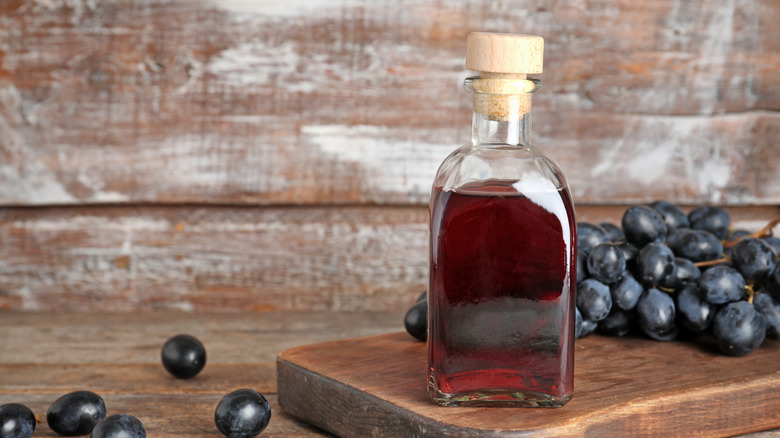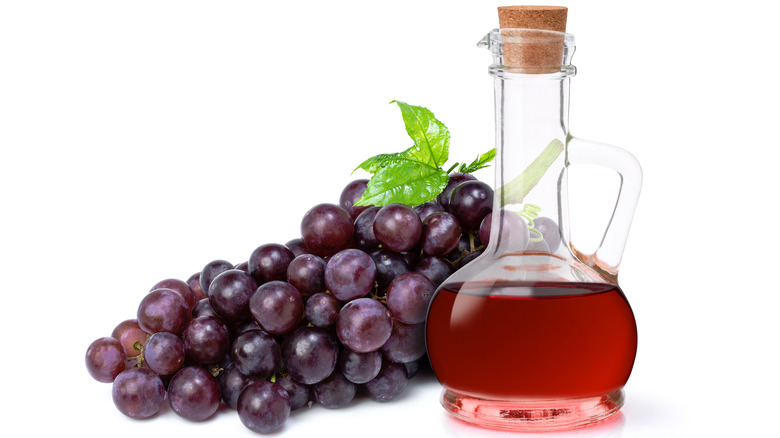What To Look For When Buying High-Quality Red Wine Vinegar
Vinegar has been having a moment. Shrubs, a Revolution-era method for preserving fruit in vinegar, have returned as a star ingredient in cocktails and mocktails. Switchels, a similar beverage made with ginger instead of fruit, have also appeared in stores pre-bottled with charmingly rustic labels. And any number of so-called drinking vinegars have gotten us to pay more attention to what kinds of tongue-tingling stuff we put in our bodies.
But for many, vinegar is still just a cheap pantry staple in a plastic bottle pulled out for the occasional vinaigrette. And while white vinegar has its place in the pickling domain, and apple cider vinegar is regularly taken in shot form by the health-conscious, red wine vinegar remains an elusive mistress often misunderstood or overlooked.
Red wine vinegar can add bold, fruity notes to salad dressings or red meat sauces and marinades, but the quality of the dish depends on the quality of the vinegar. It is made from red wine (in fact, the word vinegar comes from the French for "sour wine" or vin aigre), and just like wine, your vinegar should be carefully selected to ensure you're not buying two buck chuck.
Check for a quality fermented grape on the label of your red wine vinegar
Because red wine vinegar is made from wine, you should act like you're shopping for wine when you pick up a bottle of the sour stuff. According to Serious Eats, you should check the bottle to see if the grapes fermented to make the vinegar are listed. A bottle from American Vinegar Works, for example, writes on the back of the label that it is made with, "A bold, rich and warm Shiraz from California" (though the ingredients list only mentions "red wine vinegar" and "spices"). Shiraz is a popular choice for small-batch vinegar makers due to its bold flavors, which come through the tartness of the condiment.
If the grape varietals are not listed, the vinegar is probably made from a blend of grapes, which will dilute some of the flavors of the individual strains. It should also be evident that the better the wine, the better the vinegar. So if you're a fan of Pinot Noir from a particular vineyard in France or only like wines sourced from fifth-generation Greek family farms in the Messinian Valley, look for something with comparative grape varietals in your vinegar. This will give you vinegar with more complexity and structure instead of something that is merely acidic and overpowering.

